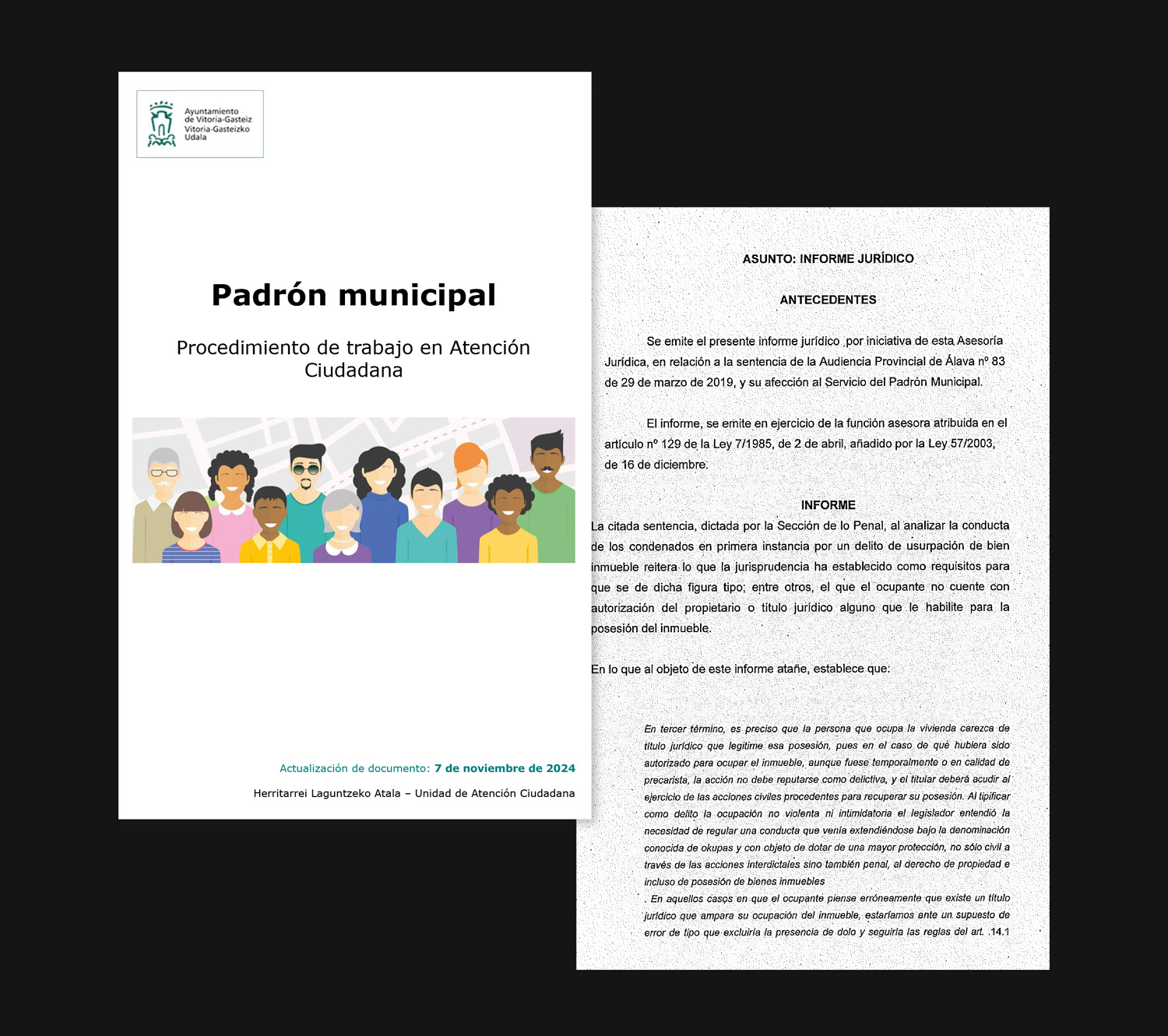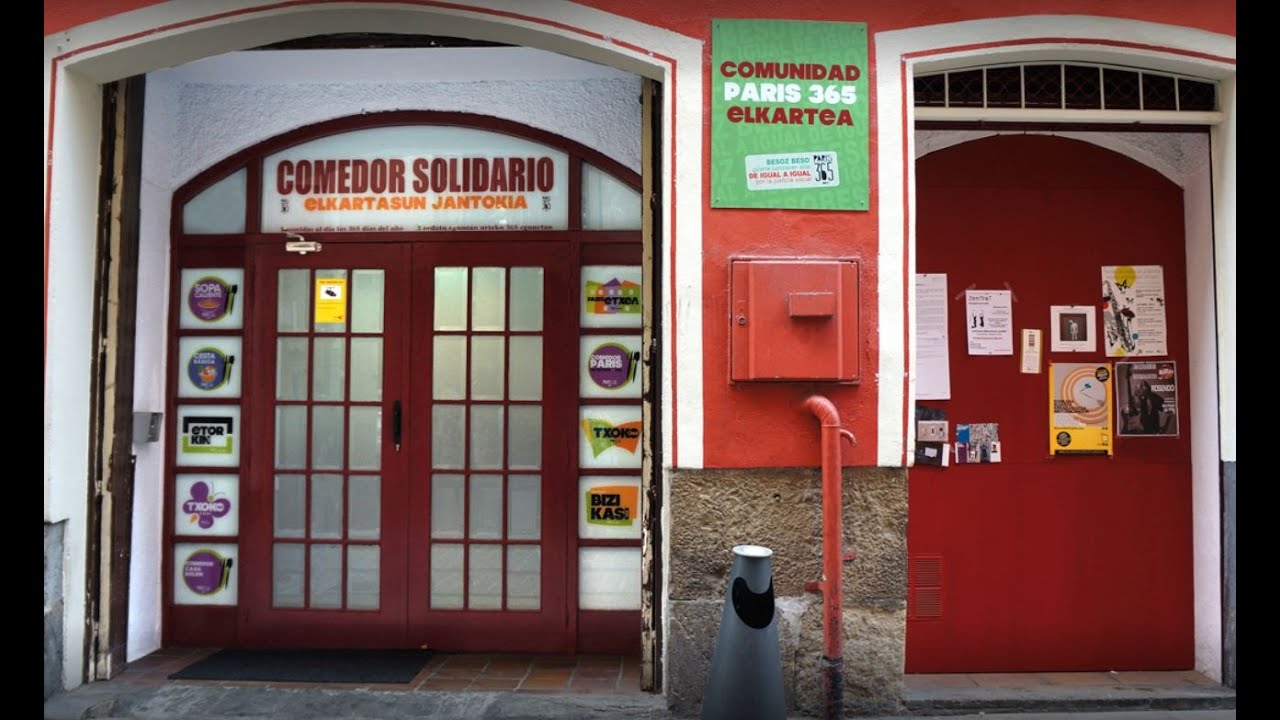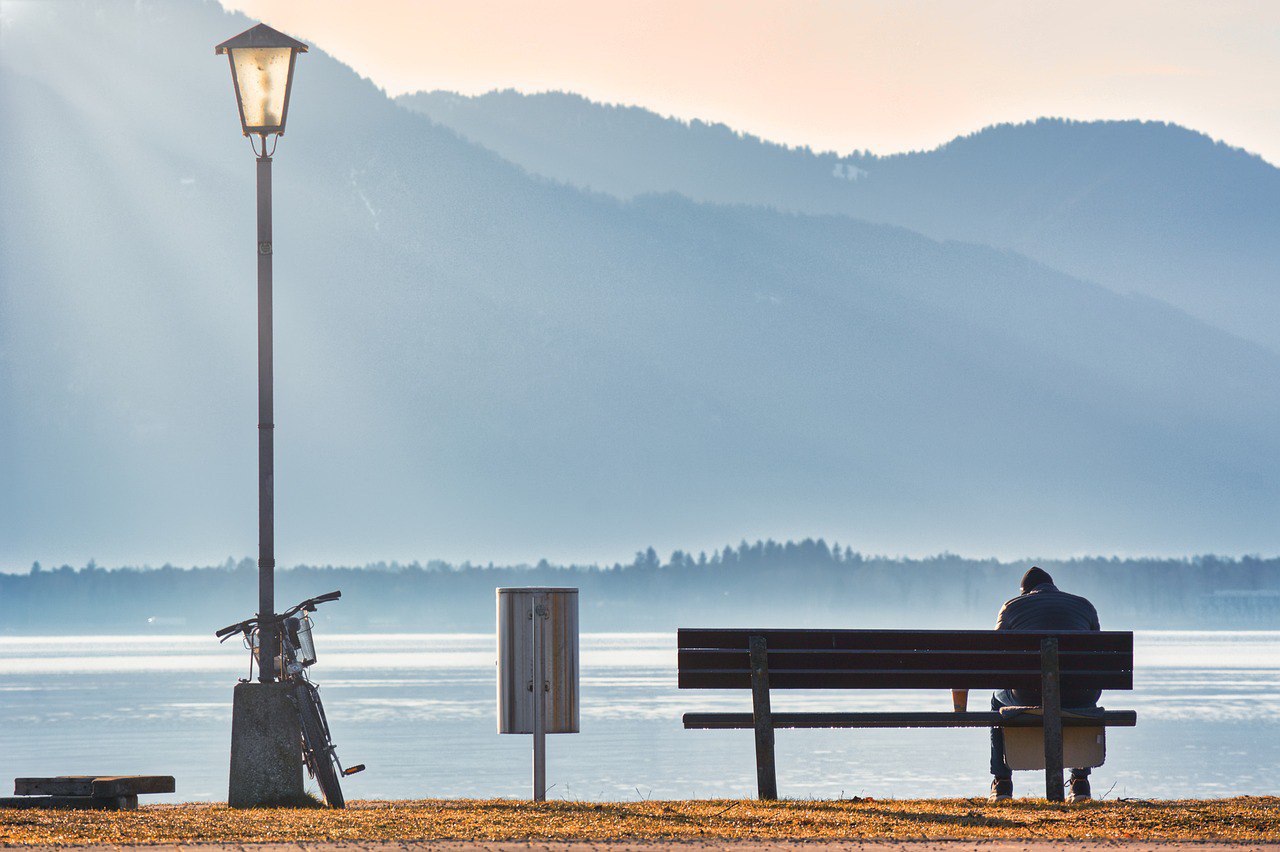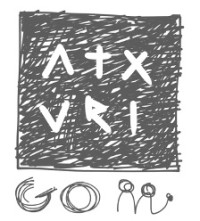“The City Council is illegally denying the census to the most disadvantaged people”
- The initiative No Being Without a Census published two internal documents of the City Council of Vitoria-Gasteiz on 30 January. It includes restrictive criteria to register in the municipality, “unfair and illegal”, according to the agent, to the detriment of the most marginalized citizens. A health card, social benefits, schooling... a document that is essential for the acquisition of several basic rights is thus left largely to the will and money of the owners. Luna Bengoetxea talks to Gartza, a member of the LUNA Neighborhood Housing Network and of the initiative No Being Without a Census.

One of the two internal documents published at the end of January is the report of the Legal Advisory Council of the City Council of June 21, 2019. The report states that no citizen will be registered in buildings owned by the city council without explicit permission to do so, even if the citizen actually lives there. The consultancy carries out the interpretation of a criminal sentence of the Provincial Court of Álava for this purpose. In that ruling, the judge found a family innocent in the face of an accusation of occupation. “Ironically, the city council has taken advantage of a progressive judge’s ruling to make a restrictive interpretation and oppose the right to census,” says Bengoetxea. “The sentence doesn’t say that at all,” the initiative said, not without the Census. He even made sure that the position of the consultancy is against the law.
The municipal census. The second internal document of the City Council that was released, dated 2024, is registered in the Citizen Support Offices. The registration is carried out in the Citizen Support Offices in Vitoria-Gasteiz and the report of 129 pages provides instructions for the local staff. Among other things, it specifies that a citizen who is not the owner cannot register in a house without the explicit consent of the owner, or in the absence of a lease that has been in force for less than one year; it establishes a limit of no more than seven censuses per house – although in many houses there are more people who live because of the rent per room – or it prohibits the registration in infra-houses. Bengoetxea has also been fond of the illegality of these criteria.
The two internal documents of the City Council show that it has implemented illegal regulations to register citizens, according to the initiative
Legal and fair
What does the law say? The Census is regulated in the Spanish State by Law 7/1985. “The law says that the administration has a ‘need’ to register citizens ‘where they live’,” explains Bengoetxea. A ruling by the Supreme Court of the Basque Country confirms that, in 2024, the census must “reflect the real place of residence”. It also refers to the “binding” guidelines of the National Institute of Statistics (INE): “The INE determines that it is equal to the conditions in which the place of residence is located or if the residents are authorized or not to be present.”
Beyond legality, Bengoetxea insists that denying the census in this way is unfair and violates fundamental rights, precisely because the census “is an access to fundamental rights”. The census is essential for the schooling of children, the acquisition of a health card or the registration of children in Trades and Homes. And it also marks the seniority: you have to be registered for three months to access the health card, for six months to be entitled to Social Emergency Aid, for three years in the case of Income Guarantee...
Commodification and politicization
The initiative accuses the City of Vitoria-Gasteiz of “politicizing and commodification” the Census without the Census. Commercialize it, among other things, for the power it gives to homeowners. Many landlords refuse to make a contract with their tenants, while many others register citizens who do not actually live there for money – usually between 100 and 300 euros per month, according to journalist Jon Hidalgo in Alavesa.
Politicize, because those that the city council disguises as technical criteria are actually political. The proof of this, explains Bengoetxea, is that in other towns and cities they do not demand the same conditions and that the City Council of Vitoria-Gasteiz itself began to establish new limits in 2019 with its own initiative.

Vitoria with exception
She is part of the network of Housing Unions of the Basque Country, Vivir en el Barrio. “When the changes started, we asked members from other places if they had the same problems and not.” The municipalities of Bilbao and San Sebastián, for example, accept water or electricity bills as proof of residency in the absence of a contract, or the municipal employees make visits to these addresses to verify the data –this is what the Vitoria-Gasteiz City Council did with the neighbors who were registered in the neighborhood of Errekaleor years ago. Currently in Vitoria-Gasteiz, as recently reported by the three families of Bizi in the Barrio, citizens are denied registration in the residential area because they do not have a contract... and the notification of the denial is sent to the same address.
Reading the Legal Advisory Report and looking at the statements and media campaigns of some parties, one might think that the main reason why the PSE-EAJ government tightens its regulation is to resist the occupation. But this does not make sense: the census regulations affect thousands of Vitoria-Gasteiz people and, among them, those who have occupied a place to live are a total minority, Bengoetxea stressed.
"A racist, anti-poor and anti-occupation policy is what the city council does with the census"
Campaign for the right to census
In 2023, the initiative No Being Without a Census was created in collaboration by several agents: The neighborhood of Errekaleor, Batu, Molino Plural, Live in the neighborhood, Welcome Refugees and No One Homeless.
In 2024 they published the Guide to Legal Self-Defense, in which there is a model instance to present at the City Hall, “to be used when the City Hall denies the census for not having the contract.” When the City Council confirms its refusal, the citizen can go to court, and the purpose of the initiative is to obtain, through the collective use of this individual route, a series of sentences that are contrary to the municipal census regulations. With these in hand, the last step would be to go to the prosecutor’s office to ask him to demand that the city council adapt the regulations. “It’s a long road, but we think it can yield results, and in the meantime, every favorable verdict we get is a pressure on the city council.”
Bengoetxea emphasizes that they are trying to influence “on all fronts”: the street, the media and social networks, the institution and the courts. They have a very specific purpose: Pressure the Vitoria-Gasteiz City Council until the right to register is restored in force. “The City Council is illegally denying the census to the most disadvantaged people. It is a racist, anti-poor and anti-occupation policy, we must put an end to it,” says Bengoetxea.
The policy of the Basque Government to criminalise the poor has become news again in November. Lanbide has created an anonymous whistleblower for honest citizens to denounce “any suspicion of irregular actions” from potentially fraudulent citizens receiving Income Guarantee... [+]
Pools can be a classroom to understand class conflict, analyzing differences between bodies. I've been swimming in municipal pools for many years. Almost always in the Aldabe Civic Center, located between the neighborhoods of Alde Zaharra and Errota. But there was a time when I... [+]
Iruñerriko Etxebizitza Sindikatu Sozialistak eta Harituk Iruñeko Udalak etxegabeentzat eskaintzen dituen baliabideak kritikatu dituzte: "Ogi apurrak dira", adierazi du Martin Zamarbide Harituko kideak. Behin behineko zenbait "aukera" ematen... [+]
There were Shaky, Violet, Arsalan and Zhara. Couple and family composed of their children aged 3 and 4 months. They lived with four other people on a seafront in Tetuan Plaza in Barcelona. The space was the seat of a bank, until it closed and abandoned it. Another 13,000... [+]






















